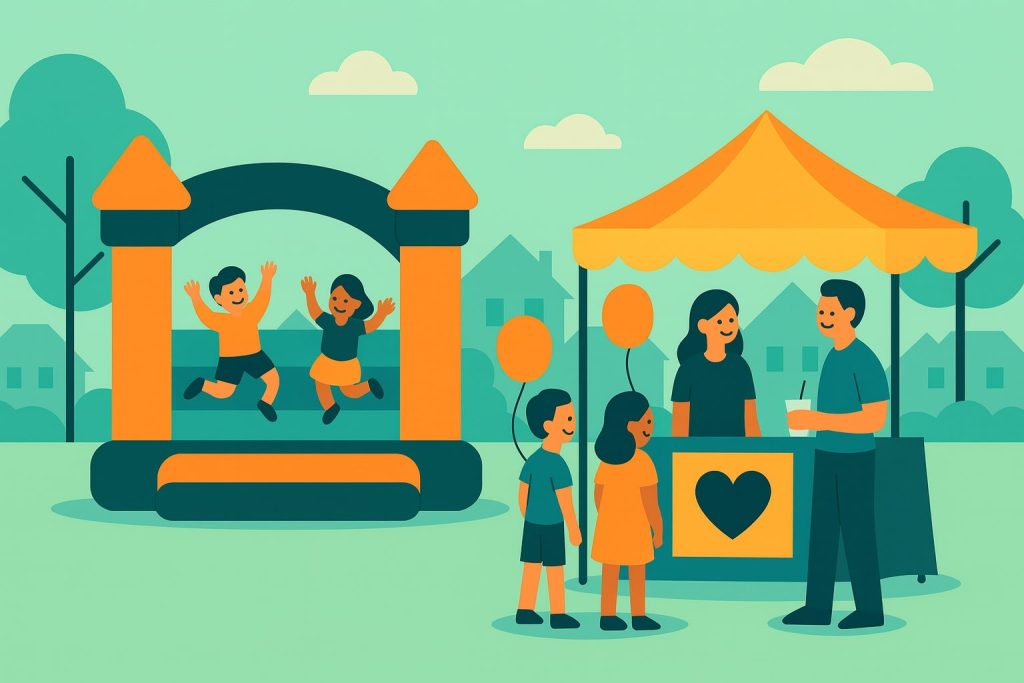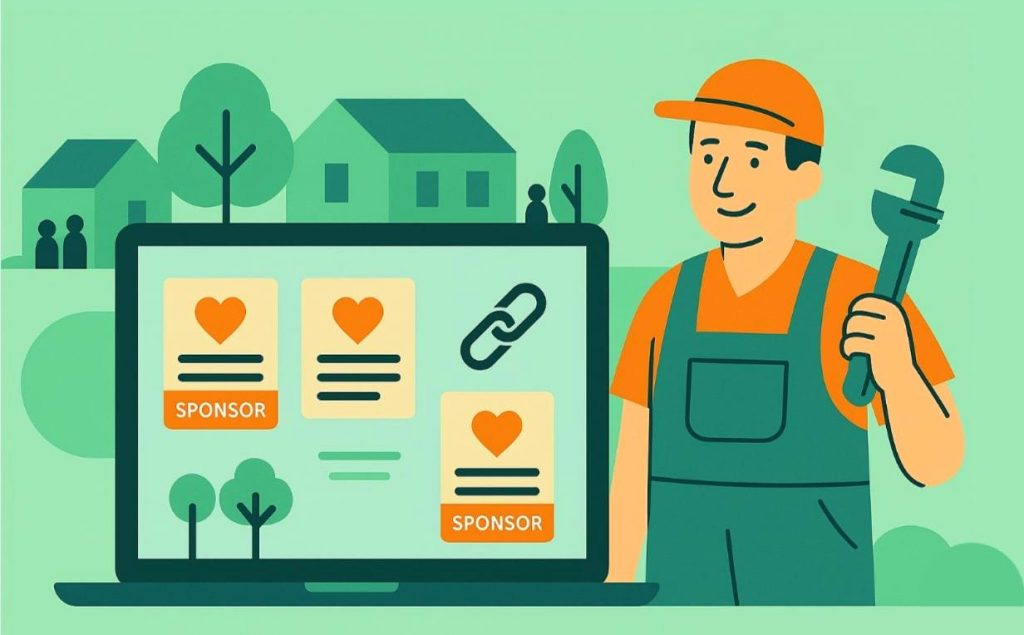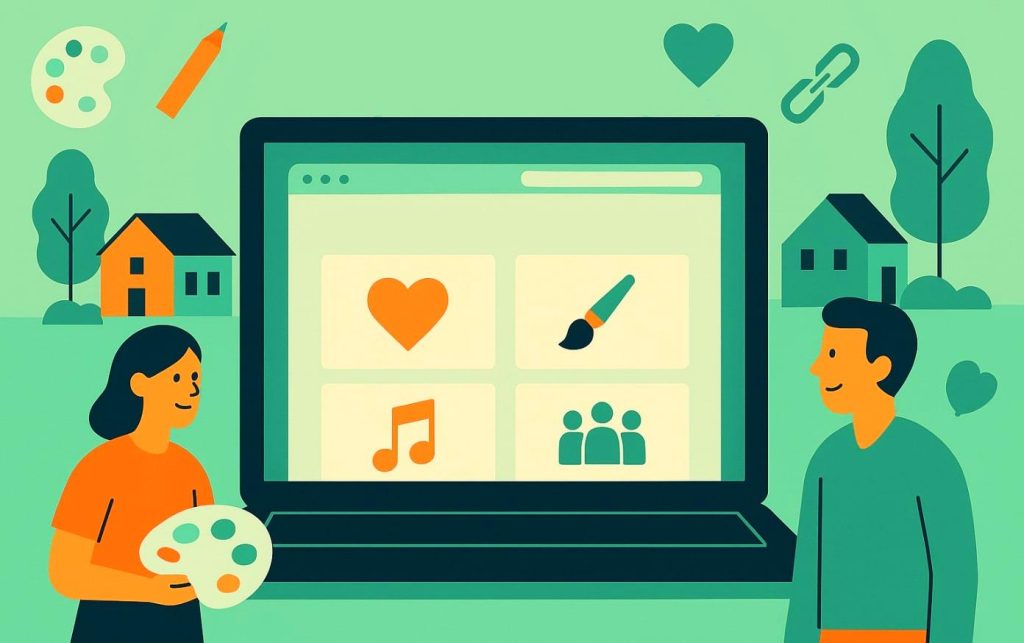My parents have a piano sitting in their living room that hasn’t played a note in a few years, at least. Someone’s always meaning to take lessons again. But it just doesn’t happen. And yet, the piano makes the house feel cozier. It adds personality, even silently.
I’m sure my family isn’t alone. The United States houses about 10 million pianos, according to today’s guest. And some of exist as furniture pieces, more than music machines.
I’m not saying this is the ideal scenario for a piano. Living room accent piece is certainly not the instrument’s purpose. And yet, this the reality of the piano. They’re huge, they’re expensive, they’re investments. You don’t just sell them at a garage sale because little Suzie decided to focus on karate instead of music lessons. And, as I’m learning, looking at the reality of a situation can lead to some pretty interesting ideas.
For example – today’s guest Newell Hill is the founder of nonprofit, that embraces both characteristics of the piano – its musical gifts, and its ‘set piece’ side. In addition to refurbishing old pianos for traditional use, the organization pairs with artists to paint pianos for display in public or in private spaces. This initiative, Pianos on Parade, has sent formerly unused pianos around the United States, to enhance local spots on beaches, in malls, and on street corners.
And the funds from this endeavor goes right back into the original purpose of pianos – giving musically inclined people the opportunity to express themselves.
In today’s episode, we’ll talk about the story behind the nonprofit – how Newell knew he wanted forgo a more traditional career path to help give kids access to pianos, and how Keys for Kids manages to sustain itself almost like a business, while remaining a nonprofit.
Welcome to the Zip.
Megan Hannay:
Newell, thank you so much for being on the Zip podcast today.
Newell Hill:
Yeah. My pleasure, Megan. Thanks for having me.
Megan Hannay:
Sure. First, can you give us the overview of Keys for Kids? Where is your organization located, and what do you do?
Newell Hill:
Sure. We actually have four locations. We’re in Minnesota. Twin Cities, St. Paul. Then, we also have a location about an hour southwest of Minneapolis Twin Cities area in a town called Belle Plaine. That’s our headquarters. Then, we have a location in Chicago as well as Kansas City.
Megan Hannay:
Got it. I only laughed because I feel like you say Minnesota exactly the way that people not from there say it with the Minnesota accent.
Newell Hill:
Right. Yep. I’m very much Minnesotan. I grew up here, and I have the accent.
Megan Hannay:
Yeah. Can you tell me a bit about you? I’ve been reading about you guys online, and I think you’ve been playing the piano since you were very young. When did you catch the bug?
Newell Hill:
Yeah. I started lessons when I was in the third grade, and then I continued on through high school. I had a teacher, actually, in the 10th grade who inspired me to want to give back and help other kids get the same opportunities I had with music growing up. That’s where the inspiration came for Keys for Kids. I started selling these pianos out of my parents’ garage after I graduated high school. That continued and kept getting more and more pianos. Eventually, we got our own location and grew the business from there.
Megan Hannay:
I think something that a lot of people with a passion for the arts like you have, something they often struggle with is finding a path where they can stay true to their passion, but also essentially make money, put bread on the table. Some people pursue music schools, or other people might take a day job and just work on their passion as a hobby. I think what you’ve done, and some other non-profit organizers I’ve talked to is a really creative way to go about it, which is share their passion with others via a non-profit. How did you end up going in this direction?
Newell Hill:
This wasn’t the original plan. I definitely was going to pursue just a normal career. I was planning to be a teacher. Then, just doing this Keys for Kids thing on the side as a hobby. I at first didn’t take a salary and just volunteered my time with the organization. Then, two years into it, it was getting bigger, and it got to a point where I realized I could turn this into my career and made that decision and haven’t looked back since.
Megan Hannay:
Wow, awesome. I saw in one of the videos on your website, you said something about how, yeah, you realized you were more happy when you were doing this than you were when you were actually market making more money, that you realized that was your passion. If less money means you’re still happy, that’s probably a good thing.
Newell Hill:
Exactly, yeah. That was a big turning point in my life. It was the inspiration for writing a book called Octaves of Success, 88 Keys to a Passion Centered Career. I just didn’t have anyone really in my life saying, hey, yeah. You can start a business and do something you’re passionate about. My family is pretty conservative and always just assumed, yeah, get a degree and get a job. I wrote that book just so that other people can realize that if they are creative, they can find ways to turn their passions into a profitable career.
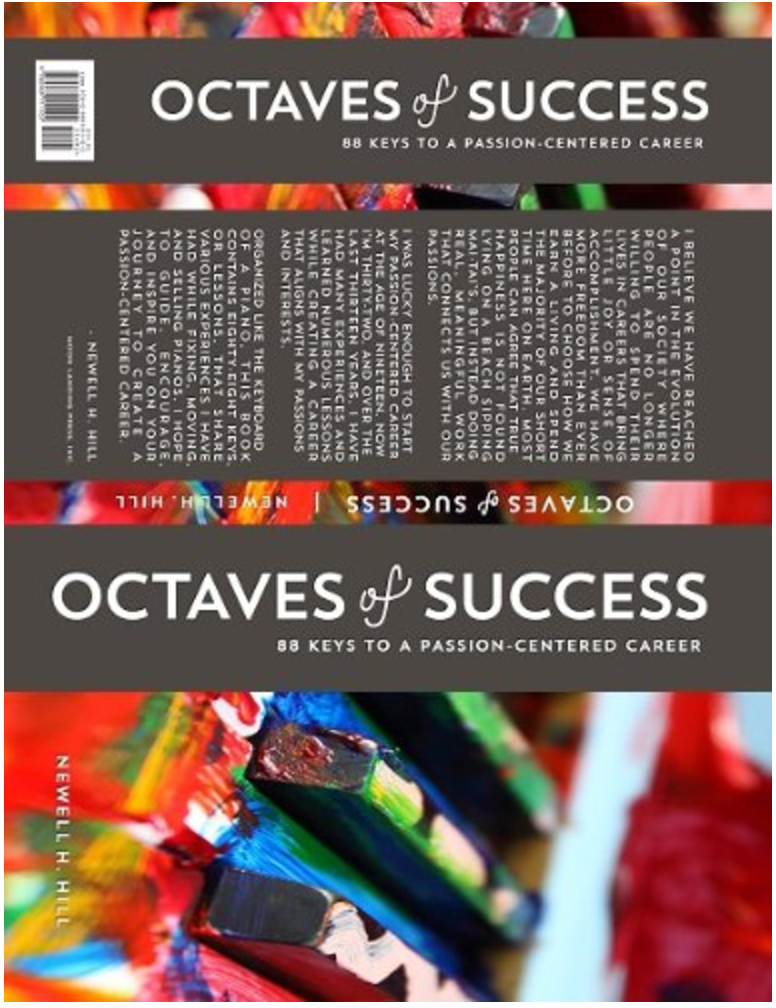
Megan Hannay:
Yeah. I think that’s something that a lot of people are discovering now, but it feels like a very new idea. You started Keys for Kids in the early 2000s, right? What did the organization look like in its early days?
Newell Hill:
I was just me in my parents’ garage working on pianos. I did all the tuning, fixing, selling, moving of the pianos. Then, with profits that we made from the sales, we were doing an afterschool program in North Minneapolis. I had volunteers helping me, and we were using the profits to buy keyboards and supplies for the kids. Then, it just started growing. We started getting donations, grants, and that sort of thing. People were just really believing in our mission and our cause. That’s where it started from, and now, we’re doing about $1.5 million in sales every year. We collect about 1,500 pianos. We have a staff of close to thirty. Anywhere from piano movers, technicians, staff, sales staff, admin. A huge variety of people now working for the cause.
Megan Hannay:
That’s so huge, and it’s so interesting to me that you guys, just looking on your website, you have four different locations. Huge rooms full of pianos. There are that many, I don’t want to say unwanted, because I don’t think they are unwanted, but that many pianos ready for a new home, just in the locations where you are, is mind-blowing. I’m like, what did they do with them before?
Newell Hill:
Yeah. It is pretty incredible. There’s about 10 million pianos out there in the United States in people’s homes right now. We, I think, are just starting to scratch the surface, and we’re really trying to find creative uses for these pianos other than just selling them. We also use them in our program, and you may have seen painted pianos around in streets and sidewalks. That’s one of our programs called Pianos on Parade. We paint that pianos in local schools and then place them in outdoor locations for people to play and enjoy.
Megan Hannay:
Yeah. With ZipSprout, obviously, we help organizations find sponsors, or actually help matchmake sponsors and organizations. I saw on your site as well that after the financial crisis, you changed your model so you wouldn’t really have to depend on sponsorships as much. Can you talk a bit about that, and why you decided to go in that direction?
Newell Hill:
Yeah. When I first started the organization, we were selling pianos out of my parents’ basement, but the majority of the money was actually coming in from grants and donations. Then, with the financial crisis, when I was looking at, how do we adjust this model? Because I had to close program doors at that time because of the loss of funding.
I decided the piano sales model has a real possibility for having a sustained and stable revenue source for our programs. That’s what I focused in on, around that time, and we still do get grants and donations, but it’s only about 5% of our total revenues. Our piano sales are about 95% of our operating revenue.
Megan Hannay:
Yeah, and I think that’s so neat for a non-profit. Obviously, there’s a ton of different ways to operate a non-profit, but that you guys are pretty much entirely operational in a way that’s like your own business, that you’re really able to control and scale up and scale down and you’re not beholden the whims of a market or other people’s wishes, which is really neat.
Newell Hill:
Very much self-sustaining, and that is something that’s important to me, that it’s a business in some senses. We sell pianos, but we’re also doing something very important in terms of supporting a good cause. That’s, I think, the best of both worlds, where you can have a sustainable business model that also does positive things in your community.
Megan Hannay:
Yeah. Let’s say a piano is donated to Keys for Kids. It can take one of two routes, right? It can either be donated to a low-income family for a young musician. Or it can be fixed up and sold to benefit the non-profit. How do you decide what route to take for each piano?
Newell Hill:
We look at each piano individually. We have piano technicians inspect them. For the pianos that aren’t in great condition, those are generally used for, I mentioned Pianos on Parade program earlier. Then, those are great candidates to be painted and placed in communities. The ones that are warrantable and in good condition, then those are either sold or, as you mentioned, donated to low-income families or institutions. A few pianos just aren’t able to be used for any of those things, we are trying to do some upcycled products out of those pianos. So, making coat racks out of pin blocks or business card holders out of old piano keys. We’re really trying to use these pianos to the full extent that we can. We hate throwing away pianos. We always want to try to make the best use that we can out of them.
Megan Hannay:
That’s so cool. I love that you can look at a piano and be like, each part of this could become something else. What can we do with this? That’s really creative. Can you tell me about the types of kids who receive your pianos? I saw on your website that there’s a video about a talented young man named Anthony, and I would encourage any listener to check out your website to see Anthony’s story and hear him play, because he’s amazing. What do Anthony and the other recipients of your pianos have in common?
Newell Hill:
They’re all kids who are taking lessons. We don’t just give away pianos to any family that says they just want to start taking lessons. We really want to see that there is a consistency and a devotion to learning the piano. Once they’ve played or had lessons for about a year or so and they may have had a keyboard or just played on someone else’s piano, then we say, all right. This child is deserving of a real acoustic piano in their home, and then we will make arrangements with them to pay for the delivery and also the tuning of the piano once it arrives at the home. It just really helps so much to have a real acoustic piano in your house to practice on. Keyboards are fine, but they really don’t create that passion for music that a real acoustic piano made out of wood and metal can do. We really want to provide that opportunity for kids, regardless of financial ability of their parents.
Megan Hannay:
Yeah. That must be such a neat thing for a kid, because a piano, it’s like hefty. It’s big. It feels like such a big deal, and to be able to get one, especially if that’s something you’re really passionate about, is so cool.
Newell Hill:
Right. Yeah.
Megan Hannay:
What kind of opportunities does having a piano at home open up for some of these kids? Have you had students who have been able to pursue a career or pursue additional options in music after leaving the program?
Newell Hill:
Yeah. We had this one candidate in Kansas City. His name was Charles Askew. He was a candidate like I described earlier that was very adamant and very passionate about learning the piano, but didn’t have one at home. He would go in early and play on his church piano and just really was showing such an interest in piano. We got connected with him, and got him a piano. Now, he has a full ride scholarship for the piano, and he’s playing professionally. He’s getting gigs around town, and it’s so cool to see this young man, who really has overcome so much in his life, really showing so much pride and success at such a young age. We’re just so thankful to be able to support young musicians like Charles.
Megan Hannay:
Yeah. I feel like that’s so cool, too, because I feel like for so long, it’s much easier to go into the arts as a career if you have a certain amount of money. If you have a trust fund or at least you have support financially. I think it’s so cool that programs like yours are enabling people that might not have that support to still pursue what they want to. It’s not making the arts such a class divide area, which is really neat. How far away can you take donations? I’m just curious. I’m in Durham, North Carolina. Would I be able to send you my piano? Do you take certain types of pianos?
Newell Hill:
Yeah. That’s a great question. I actually just got back from a trip to the East Coast last week. We picked up three pianos in Massachusetts, New York, and New Jersey. Picked up pianos in those three areas. Those were high-end pianos. Each of those pianos was worth at least $5,000. That justified the trip for us to go out there and pick those up. Generally, we’re more of a local pickup service, but for higher-end pianos, we do go around the country to pick those up.
Megan Hannay:
That’s so neat. Are there not programs like Pianos on Parade or Keys for Kids in other areas of the country? Are you guys one of the only ones that is doing exactly what you do for now?
Newell Hill:
As far as I know, we’re the only ones that are doing this. We were interviewed by the New York Times a few years ago, and they couldn’t find any other programs like this around the country, and that’s why they interviewed us. I’m not absolute for sure that there’s nothing like this out there, but I don’t know of anything personally that’s similar.
Megan Hannay:
Yeah. That’s so neat. For people that are farther away, I hope you guys keep expanding.
Newell Hill:
That is our plan. That is our goal. Absolutely.
Megan Hannay:
Which is also really, if you think about it, more of a business model than a—I feel like a lot of times, local non-profits have so much going on in their own city that they thought of going to lots of other cities is like, I don’t know. But because you guys have the business model, it’s a bit easier for you guys to take on new places.
Newell Hill:
Absolutely, yeah. That’s what gets me excited, too, is to think that we are going to be adding new markets here very soon, and I think that’s a very positive thing. We get emails daily from people wanting to donate in other markets, and we have to tell them that we just can’t really accept that particular piano at this time. That is definitely our goal.
Megan Hannay:
Can you tell what markets you’re going to be launching in next? Or is that not ready to be revealed yet?
Newell Hill:
Yeah, it’s not ready to be revealed. We haven’t made any firm decisions about that, but it is a discussion at the board level of which markets we’re going to be adding and what the timeline is going to be for that.
Megan Hannay:
That’s so cool. The Pianos on Parade program, which you alluded to earlier, how did that start? Was it like you were like, we got this great donation, but it’s not quite—we can sell it, and it wouldn’t make sense to give this away. It’s not quite in good condition. Let’s paint it. What was the story of the first painted and parading piano?
Newell Hill:
I have to give credit where credit is due here. There is a person named Luke Jerram that started a program called Play Me, I’m Yours. He started doing that in New York City in 2009. We saw that event. We heard about it on national news. That’s kind of where we got the idea. Hey, we have all these pianos. What could we do with these pianos that is similar to what Luke is doing? Ours is a little bit different in terms of, we’ve now developed curriculum for classrooms to paint these pianos, because we are obviously a children’s charity. Our focus is on helping kids and providing that as a constructive resource in classrooms. Luke works more with professional artists, but it’s a similar thing to paint these pianos and then to place them in public locations for people to play.
Megan Hannay:
You guys have installations, right? Times when it’s an art installation, but with painted pianos. Do you have a favorite installation somewhere of a piano that you guys have painted and placed?
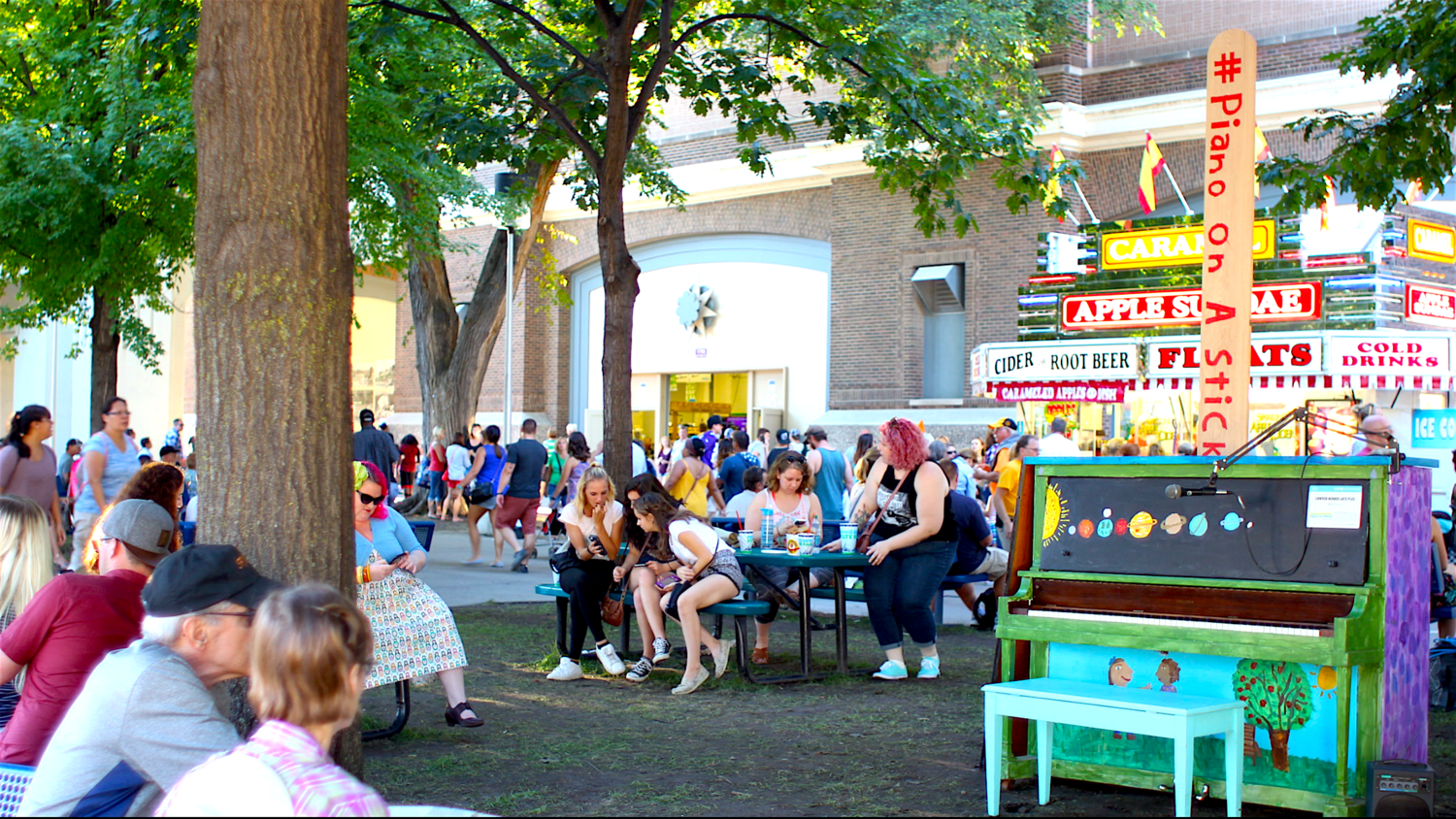
Newell Hill:
There’s this one. We worked with an artist. Sometimes we do also work with artists as well. Our focus is on kids, but also do the professional artist realm as well. This person was in Kansas City, and she did big cutouts of plywood and basically made a skeleton of a Tyrannosaurus Rex and built it all around the piano. It was just mind-blowing, how good of a job she did on this, and how you could turn a piano into a dinosaur. That one always stands out in my mind, but there’s been so many. We’ve done, I think, around close to 300 now painted pianos over the years. We’ve been doing it since 2010. There’s just so many.
Megan Hannay:
You sell them, too, right? I could, I think for $2,500, I could order a painted piano with my design specifications or my personality. You’ve been doing that part since 2010 as well?
Newell Hill:
Yes and no. This is actually the first year that we’ve offered that on a national level. We’ve been doing that to some degree since 2010, but this is now the first year where we’ve really honed things in and basically, yes. We can offer anyone in the country, if you want to support a piano to be painted in a local school in your area, it’s $1,500. Then, if you want a professionally painted piano by an artist, it’s $2,500. That includes all the supply costs, the pianos themselves, transportation. We provide custom covers that go over the piano to protect them from the elements. We put a plaque on the piano recognizing the sponsors. That is, yes, something that we can offer. That is very exciting to say that we can offer that nationally. We’ve now done that in Florida and New York, Texas, Mississippi, Michigan, Colorado, California. Those are just a few of the states we’ve worked with this year.
Megan Hannay:
Where’s the farthest away piano? Is it the California one?
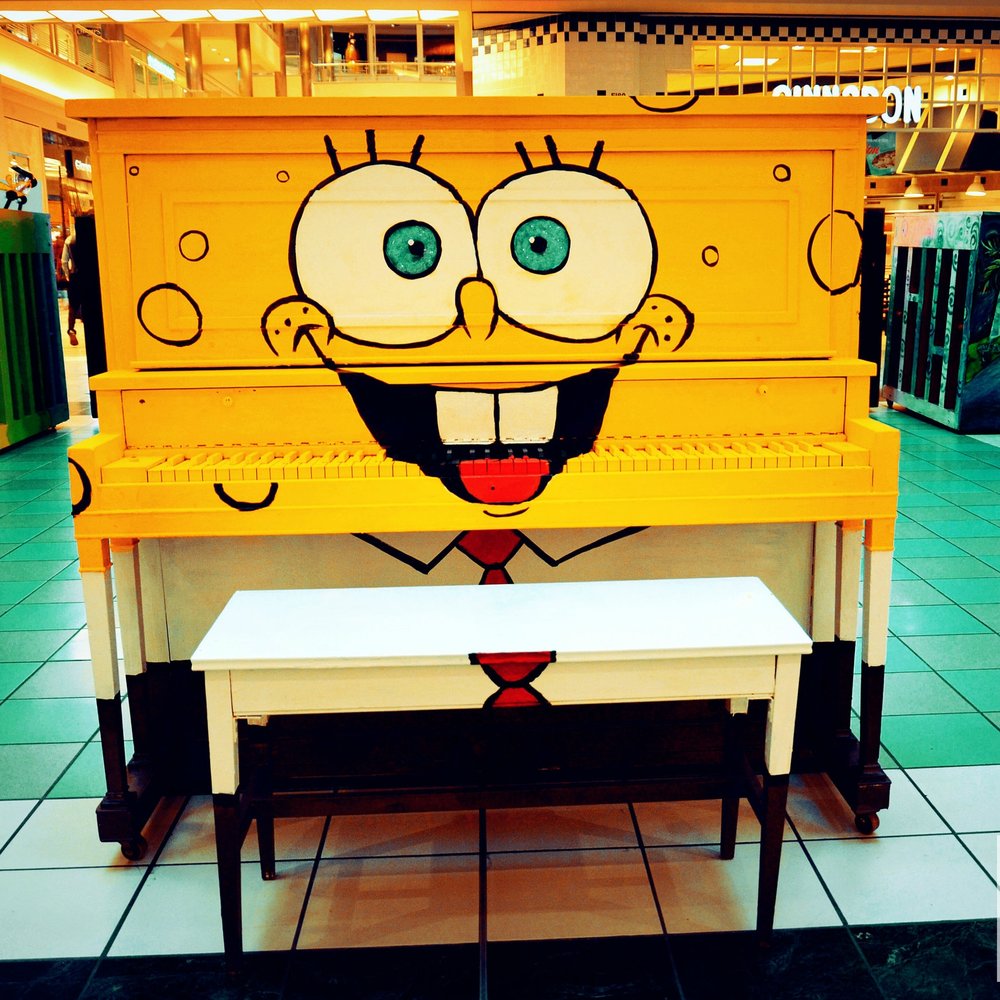
Newell Hill:
It could be, or maybe the Florida one. We did one is Surfside, which is just north of Miami. Yeah, that might be the furthest one, I think.
Megan Hannay:
That’s really neat. Just the idea, I’m like, that would be such a cool gift for someone or for a classroom, like you said, to get a piano painted in their honor. You guys also did 25 painted pianos around—it feels like a tongue twister, painted pianos. You did 25 around Minneapolis last year, last summer. Are you planning to do that again? Can you tell me about that project? Twenty-five is a lot to place around. How did that happen?
Newell Hill:
Yeah, and actually, we did 28 this year. They just went out last week around—all in downtown Minneapolis. That’s a partnership that we have with Minneapolis Downtown Council, which is basically a collection of businesses in downtown. They really help out a lot. It is obviously for us, just to do 27 pianos alone, that would be quite a bit, but they actually help out by working with the artist and then finding the locations and the hosts and making sure that people are taking care of these pianos. They do events around them. They’ve been really great to partner with, because like you said, it is a lot to do. They all go out, believe it or not, in one day. We deliver them all in one day.
Megan Hannay:
That must be such a cool thing for the residents of Minneapolis. It’s like piano month, and then pianos are everywhere for a month and finding them all and that kind of thing. I wish more cities would do that.
Newell Hill:
Yeah. I’ve been in communication with a lot of cities around the country, and most of the ones that sponsored this year are cities, but they’ve only done one or two. We’re hoping that we get some cities next year that step up to the level that Minneapolis has and say, let’s do 30 or 40 pianos, because we could make that happen. We have more pianos than we know what to do with. Like I said, we get about 1,500 every year donated to us. We have plenty.
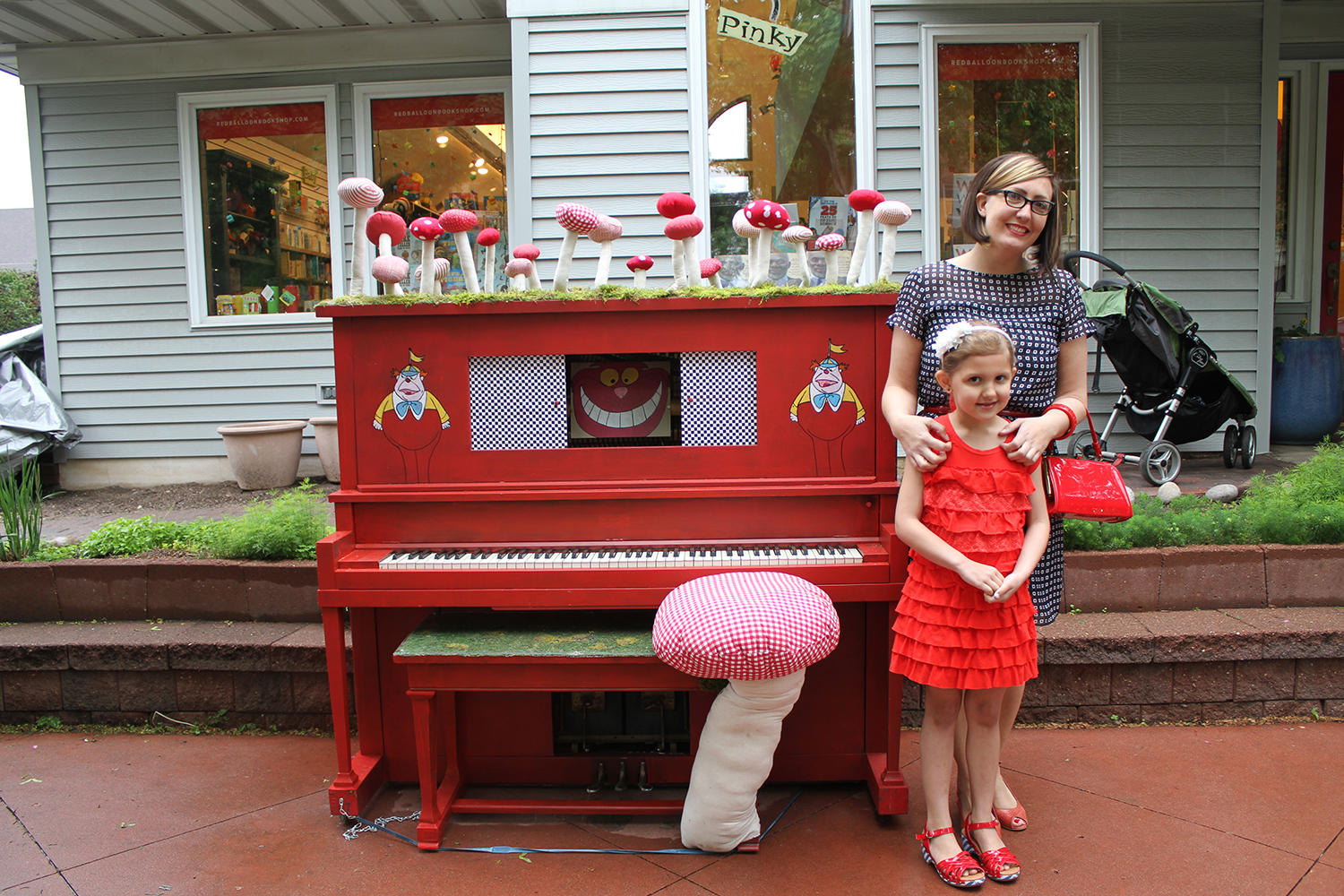
Megan Hannay:
Yeah. It would feel almost like a treasure hunt in your own city to find all the different pianos. That’s so cool. Finally, and we’ve been, I guess, talking about Minneapolis a little bit, but I love to end the podcast with asking the guest about the city that they’re local to. You live in Minneapolis-St. Paul. What’s that community like? What makes it special besides having all the pianos around every summer?
Newell Hill:
I’ve been doing a lot of traveling this last year with Pianos on Parade, and I actually have seen a lot of the country now. I’ve been driving a lot. This is a beautiful country we live in, and you get an appreciation for your own area and what’s unique about it. I never really realized this before, but we really are the Land of 10,000 Lakes. There’s not a whole lot of lakes out there in the country in terms of the concentration that Minnesota has. I would say, if you like to boat or fish or just be on the water, the Twin Cities and Minnesota in general is just a really nice spot to appreciate the water.
Megan Hannay:
Cool. So, it’s a good outdoorsy place.
Newell Hill:
Yes.
Megan Hannay:
In the summer, anyways.
Newell Hill:
Yeah, the summer. Don’t come here in the winter, unless you like to ice fish. I guess you could do that.
Megan Hannay:
Yeah. Well, Newell, thank you so much again for taking the time to talk with me. It’s so cool to hear about what you’ve done with Keys for Kids and how you’ve built it into a businesslike non-profit. It’s such a very innovative way to do it. Thank you.
Newell Hill:
Thanks so much, Megan.

